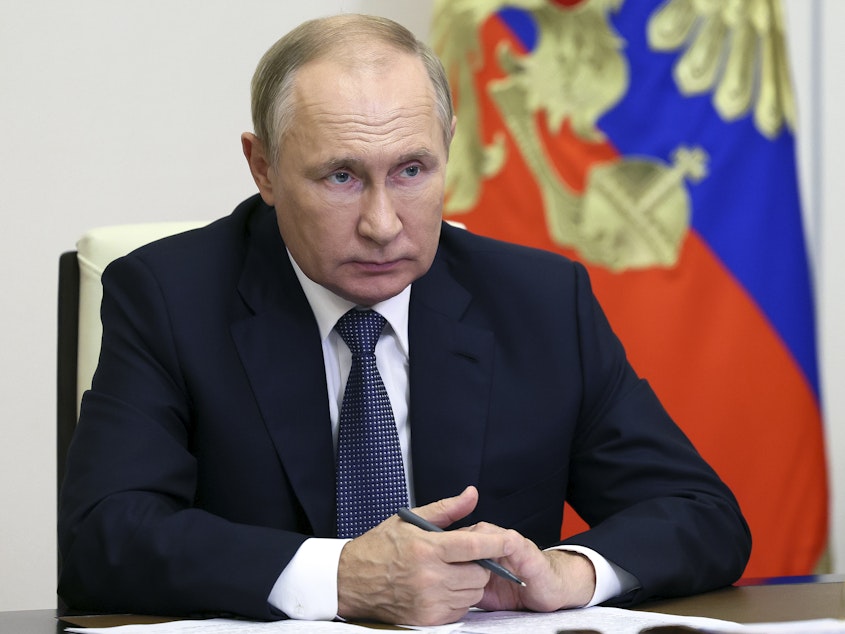The International Criminal Court issues an arrest warrant for Putin

The International Criminal Court has issued an arrest warrant for Russian President Vladimir Putin for alleged war crimes involving accusations that Russia has forcibly taken Ukrainian children.
The ICC also issued a warrant for Putin's commissioner for children's rights, Maria Alekseyevna Lvova-Belova.
Updated March 17, 2023 at 12:35 PM ET
The court said in a news release Friday the two are "allegedly responsible for the war crime of unlawful deportation of population (children) and that of unlawful transfer of population (children) from occupied areas of Ukraine to the Russian Federation."
The move by the criminal court at the Hague marked a significant, rare step, requesting the arrest of a sitting world leader, analysts said.
Sponsored
Russia is not a party to the court and a Foreign Ministry spokeswoman said there's no significance to this arrest warrant. Ukraine called it "historic."
A report released last month by Yale University researchers and the State Department accused the Russian government of operating a systematic network of custody centers for thousands of Ukrainian children.
Russian officials have not denied the arrival of Ukrainian children in Russia, but have previously characterized the children centers as part of a large humanitarian project for abandoned, war-traumatized orphans.
ICC President Piotr Hofmanski said the judges decided to make these warrants public to try to deter further crimes.
"It is forbidden by international law for occupying powers to transfer civilians from the territories where they live to other territories," he said. "Children enjoy special protection under the Geneva Convention."
Sponsored
This is a developing story. Please check back for updates. [Copyright 2023 NPR]
